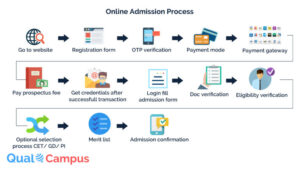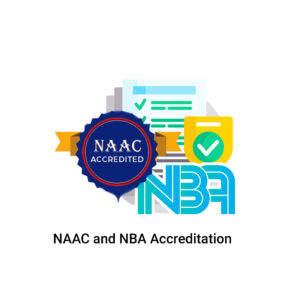A Guide to Successful ERP Implementation for Universities, Colleges and Schools
The unprecedented COVID-19 pandemic has pushed the educational institutions towards digitization. Dependency on Technology increased tremendously.
Online Education ERP has become imperative.
Apart from Online admissions, online teaching and online fee collection, online exam is the need of the day.
Schools, Colleges and Universities need such ERP which is ALL-IN-ONE, which suffices need for academic, non-academic, accreditation and all operations under one Umbrella.
Having so much dependency on the Technology and LMS or ERP, thought to share some tips on effective implementation of Education ERP;
Criteria for Choosing the Education ERP;
- Choose reliable longtime experienced ERP vendor with proven product and process knowledge.
- The ERP must be as per the current technological advancements and the latest trends in the market.
- The ERP should have good data migration tools and utilities so that the efforts of re-entering the data is eliminated.
- The ERP should be an all under one umbrella package consisting of but not restricted to Online entrance test, Online Admissions, & Online Fees Management System, Online lecture delivery, Online Exams and Assessments , Mobile App for Student, Parent-Teacher & Management Collaboration, Choice Based Credit System (CBCS) Software or Outcome Based Education Software, etc.
- The ERP must be in line with the rules and report requirement set by different accreditation and government bodies AICTE, NABET, NIRF, NBA, NAAC, UGC, ASIC, ABET, etc.
- The ERP should give analytics and reports which helps in decision making on which management can rely.
- The ERP must have a post-implementation support ticketing system wherein day to day issues and tracked and get resolved as per priority
- The ERP should be user friendly so that the users easily understand and start using the software with minimum training.
- The ERP must provide integrations with various hardware devices like RFID, Biometric, GPS and Social media APIs and other Standard software APIs.
Key Point for the management to ensure successful implementation:
- Training & retraining continuously for all stakeholders is required to increase the usage of multiple features of the ERP.
- Authorities should conduct User acceptance Testing or Pilot run. It is necessary to check set up and configurations have been done properly
- All stakeholders must be made aware as to “How the ERP not only benefit the Organization, but more specifically, how does it impact their daily lives?
- Management should be well aware as to the Usage of the ERP and, what issues users are encountering, and how to make ERP more effective.
- The Infrastructure chosen for hosting ERP should be cloud based which is more secured environment with proper back-ups. The users’ interest gets fade away with frequent data loss in on premise Installations.
- The communication between the stakeholders and Vendor- Business analyst is very important. If anyone of them lack proper communication skills, it hampers the implementation.
- Customization must be done in phases, with respective stakeholders involved in freezing the requirements.
- The ERP remains unstable if the requirement is not freezed by the stake holders and keeps on changing.
- Annual Support Contract or Request for changes or enhancements is necessary for maintaining the ERP, as per the changing dynamics, if not done, ERP goes out of operation eventually and the stakeholders moves to excel or other utilities to prepare report.



